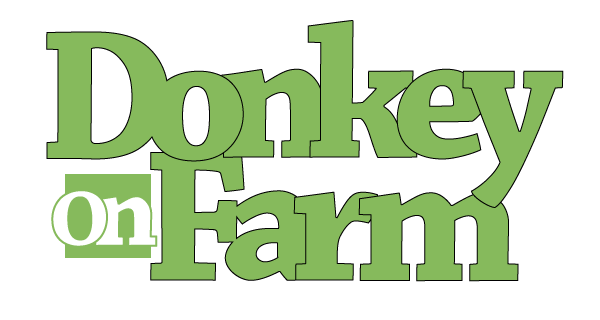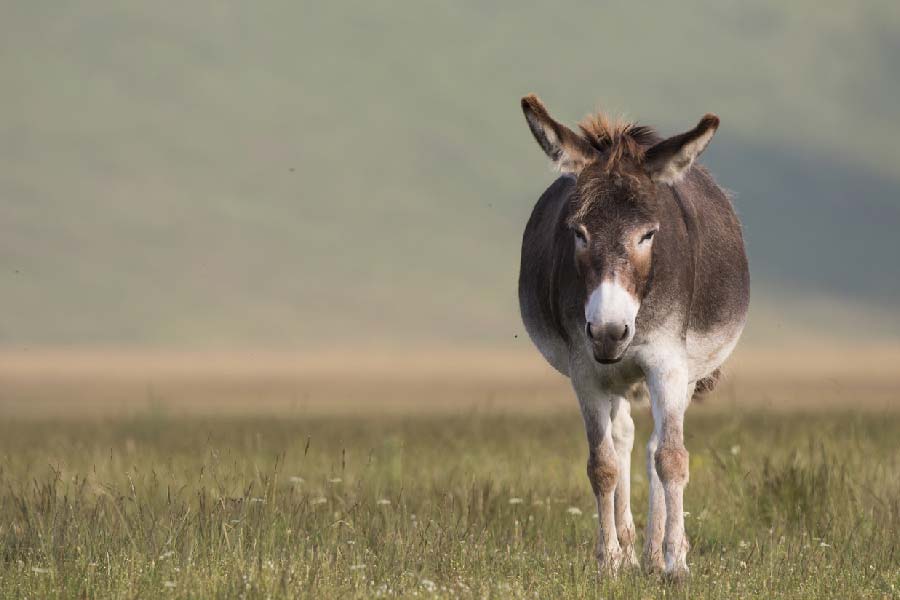When you first bring home your new donkey, what do you need to do? Besides getting your donkey set up in its new home, that is. One of the things you might need to consider is whether or not to castrate your donkey. But how much does it cost to castrate a donkey? The cost of castrating a donkey varies depending on the location, the donkey’s weight, and the donkey’s age.
How much does it actually cost to castrate a donkey?
As you might imagine, as for any large animal, the castration of a donkey is quite an involved process that takes time and preparation. These factors can cause the cost to be higher than it might be for castrating other farm animals. Still, the price is usually within a reasonable range.
Cost of donkey castration in the U.S.
In some parts of the United States, the price of castration for a donkey can be between $400 and $500. Depending on where in the states, however, it can be cheaper. One source reported the average cost in the United States as falling between $350 and $400. In comparison, another source said the prices averaged somewhere around $200.
Cost of donkey castration in the U.K.
In the U.K., the cost of castrating a donkey averaged between 220 and 320 GBP. In most cases, this did not include the ‘veterinarian visit,’ so expect to have another 30-40 GBP added to the final bill.
Additionally, in the U.K. and most other places, including the U.S., Australia, and Canada, a donkey must have received a tetanus antitoxin before surgery. If the donkey has not received this before, expect another fee with your bill.
Cost of donkey castration in Canada and Australia
Regarding castration costs for donkeys in Canada and Australia, the prices generally land in the same price range as the U.K. and the U.S. In truth, no matter what country you are in, it all depends on where in the country the animal is. The costs vary significantly depending on if it’s a rural community or a bigger city.
Why should a donkey be castrated?
A jack, or an intact male donkey, can wreak quite a bit of unnecessary havoc. Jacks often act out and are challenging to handle. They can even be dangerous to humans and other animals, especially when jennies or other males are nearby. Unless specifically used for breeding, jacks can quickly become frustrated and unhappy.
It is far kinder to castrate or geld them at a young age if they are not going to breed. A gelding, a castrated donkey, is the best donkey to keep as a pet and companion. Geldings are happy to be pets and companions. Don’t forget that even miniature jacks can be a handful. For a happy animal, it is best to castrate those jacks, too.
[Video credits: North Idaho veterinarian, Dr. Jenni Grimmett, castrating a donkey | originally published on YouTube]
Who can castrate a donkey?
A donkey should only ever be castrated or gelded by a professionally trained veterinarian familiar with donkeys and their behaviors and anatomy.
In some areas, farmers or other locals that castrate horses may claim to be able to geld a donkey. However, never allow anyone not professionally trained to geld a donkey. Donkeys are at a much higher risk of hemorrhaging. While locals and farmers may be the “cheaper route,” they pose a severe threat to your donkey’s health, well-being, and even life. These “cheaper” operations are far more likely to cause serious harm to your donkey both during and after castration.
When should a donkey be castrated?
The most common recommendation is to geld jacks between six and eighteen months. It is better to do it sooner rather than later, as the younger the animal, it is less likely to be a traumatic experience. The animal is also far less likely to get the bad habits that develop as donkeys reach maturity.
The older the animal, the riskier the procedure may be due to unforeseen health problems. For example, it would be much more complex and less beneficial to geld a thirty-year-old jack than a five-year-old jack. However, with proper care, older jacks can still go through this procedure if necessary.
How is a donkey castrated?
A donkey castration isn’t something that should occur in the pasture or the field. Taking the donkey to a large animal veterinarian’s office is usually required. Here, the surgical area will be cleaned and prepped, and all tools and equipment will be able to remain sterile, thus reducing the risk of infection.
Once the animal is under general anesthesia, the veterinarian makes an incision and places a ligature or a secure suture around the blood vessels. This ligature helps reduce any risk of post-op bleeding or prolapse of the intestine.
Conclusion
The answer to the question, “How much does it cost to castrate a donkey?” is that it is not too expensive to castrate a donkey, no matter where you might be. So long as a qualified veterinarian performs the procedure, any price within the average cost would be fair.



![How Cold is Too Cold for a Donkey? [Plus Tips to Keep Them Warm] How-Cold-is-Too-Cold-for-a-Donkey](https://donkeyonfarm.com/wp-content/uploads/2022/09/How-Cold-is-Too-Cold-for-a-Donkey-270x180.jpg)
![How to Get Rid of Flies on Your Donkey? [Plus Prevention Methods] How to Get Rid of Flies on your Donkey](https://donkeyonfarm.com/wp-content/uploads/2022/05/How-to-Get-Rid-of-Flies-on-your-Donkey-270x180.jpg)
![Should Donkeys Be Stabled at Night? [With Alternatives to a Stable] Should-donkeys-be-stabled-at-night](https://donkeyonfarm.com/wp-content/uploads/2023/04/Should-donkeys-be-stabled-at-night-270x180.jpg)
![How Much Can Donkeys Carry? [Avoid Burdening] How-much-can-donkeys-carry](https://donkeyonfarm.com/wp-content/uploads/2022/04/How-much-can-donkeys-carry-270x180.jpg)